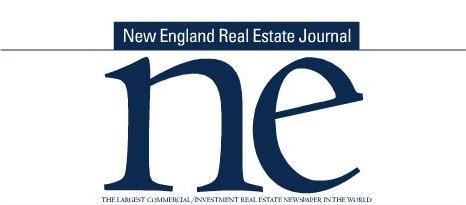What seems to be the longest year ever has come to an end! We have seen a lot change in a short span of time. Our new ways of interacting have brought forth challenges & opportunities in the business world. There is a booming economy on the horizon, but in the immediate markets are still uncertain, Steve Forbes of Forbes Magazine recently noted that “attitude of flexibility is crucial to success” and that is our anthem as we head through 2021.
We lead into 2021 with hope of some relief. Vaccines have begun to be administered. Many of Rhode Island’s essential workers and high risk individuals have received their first dose of the vaccine already. There has also been lots of talk on additional stimulus plans. Another hopeful breath of relief for businesses and individuals alike. Rhode Island government is changing. Governor Gina Raimondo has accepted a nomination for the Secretary of Commerce for the Biden cabinet. The nomination itself speaks towards Raimondo’s impact on Rhode Island’s business industry. Lt. governor Dan McKee prepares to take over upon confirmation to Raimondo’s appointment. McKee is small business focused, something the 95,000 small business owners in Rhode Island should celebrate.
Providence is home to many residential spaces in the city’s center, the need for those spaces continues to remain strong, keeping the investment market competitive. The presence of the college students has been missed with many students participating in distance learning but expected to self-correct once in-person learning returns. The retail that depends on these markets have been hurt and we’ve seen some really hard stories. We’ve also seen some champion efforts of flexibility, adaption and the creation of new businesses. Retail will return and it will look different, staying flexible to meet consumer’s needs, safely, will be essential, and the businesses you support will survive.
Industrial (particularly warehousing) and manufacturing sectors of the market continue to show strength, primarily due to the continuing lack of inventory. While this situation is similar to the tight residential market, it is exasperated by the cost of new construction, which has shown no signs of abating. Good product is hard to find and when it does come on the market, there are multiple potential buyers ready to look at it. As we have been saying for years, the demand is there, the product is not and we are still waiting for the tipping point for new construction to become more feasible. We are slowly getting there as evidenced by the start of a new 65,000 s/f facility for Resh, Inc. in the Highland Industrial Park in Woonsocket. Resh, Inc. had been looking in both Rhode Island and Massachusetts for a facility but were unable to find an existing space. In combination with state and local incentives, the company should begin construction by the end of Q1 with occupancy expected in twelve months from commencement. This along with other companies expanding on existing industrial properties reflects the strength in the market but also the need for product.
The segment of the market that we are watching most intently is office. While we anticipate the changes in the way office users occupy space, the real question is how it will impact demand and occupancy. Many larger companies have continued to keep workers at home until there is clearer evidence of the end of the pandemic. Smaller more nimble companies and business, which continue to make up the majority of employers in Rhode Island, have continued to adapt with most being able to pivot based upon the latest pronouncements from the governor’s office. Smaller companies have continued to occupy their space, but many have begun to take advantage of market conditions and have negotiated renewals that are resetting the market. As leases roll, it will be interesting to see how much this impacts the market. We expect to see leases that are expiring in the next two years to renew for short terms, while others expiring in 3 years to make bigger moves. Educational institutions play a major role in the Providence downtown market. Brown University recently acquired the Packet Building for their School of Public Health. The purchase removes another block of Class B office space from the market, which should help other similar properties. We may also see an increase in mergers and acquisitions in Q4 once firms have a clearer vision of their future.
As we look into 2021, we see the overall commercial real estate market being stable but not without its issues. The rollout of the vaccine and the eventual return to something that resembles “normal” is highly anticipated but timing is still unsure. The retail and service markets will have some recovery but the impact of the pandemic will continue to be felt. The industrial market will remain strong but impacted by the lack of inventory which will continue until new product becomes available. The office market will be a wait and see. Working from home is here to stay, recognizing there is significant build-up to returning to the office, we will see hybrid schedules for future years. We are coming out of a swale and while it might take a little time, the only direction we can go is up.

